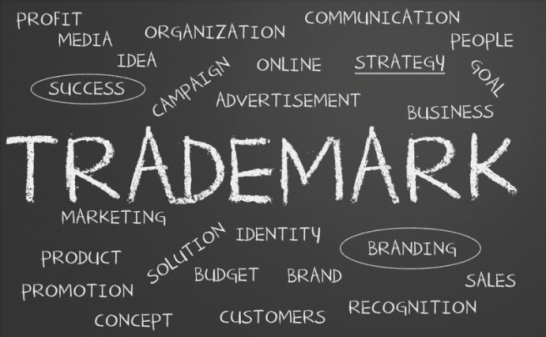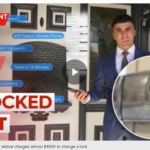Looking to take your business overseas?
 A trademark is a recognizable sign, design or expression that identifies a product or service of a particular business or individual. It may include a name, word, phrase, logo, symbol, design, image, or combination of these elements.
A trademark is a recognizable sign, design or expression that identifies a product or service of a particular business or individual. It may include a name, word, phrase, logo, symbol, design, image, or combination of these elements.
Many people who choose to operate a business in Australia decide to trademark their business name and we’ve written before about where an intellectual property solicitor may be advisable.
In Australia, you can register a trademark through IP Australia, the federal department responsible for intellectual property rights and legislation.
An Australian trademark will protect you from intellectual property violations only within Australia; for protection overseas, you must register a trademark internationally.
Registering a trademark overseas
There are two ways of registering a trademark overseas from Australia:
- Filing a trademark application in each country you wish to have protection. This method requires you to apply for a trademark through the department responsible for IP rights and legislation in each country, for which it’s recommended you hire an IP professional to help you.
- File a single application through the World Intellectual Property Organization (WIPO), and agency of the United Nations that’s responsible for intellectual property rights and legislation throughout the world.
If you have an existing registered Australian trademark, you’re eligible to register your trademark overseas via WIPO using the Madrid Protocol, a treaty administered by the International Bureau of WIPO, that provides international registration of a trademark.
The Madrid Protocol for trademark registration
There are 101 member states (or countries) of the Madrid Protocol, of which Australia has been a member since 2001. As a Madrid Protocol member, Australians can use IP Australia to register a trademark internationally via WIPO and the Madrid Protocol. (IP Australia’s role is to ensure all requirements under the Madrid Protocol are met, and inform you of issues that require remedy; likewise, IP Australia will notify you once certification has been issued by WIPO.)
Requirements for Madrid Protocol applications
The basic requirements to apply for an international trademark, include:
- An application / registration in Australia on which to base your international application
- You meet the following entitlements to file an international application:
- You’re an Australian national / resident
- You own a real industrial or commercial establishment in Australia
- You’re a person or organisation with business premises in Australia
- The mark on the international application is identical to that contained on the Australian application / registration — i.e., you cannot change or tweak the trademark or registration for an overseas market
- The goods and services in your international application are covered by the claims in the Australian application / registration
- The applicant on the international application is the same applicant on the Australian application / registration.
IP Australia provides more detail on the requirements of registering for an international trademark via the WIPO and the Madrid Protocol.
Applying for an international trademark
Register for IP Australia’s Online Services system, eServices. There you’ll be able to lodge your application via the Madrid eFile System (the only way IP Australia accepts international applications).
Using the Madrid eFile System, you’ll be able to pick which countries you’d like to register your trademark with. Although applications for multiple countries can be done at once, fees are changed based on which and how many countries you apply for a trademark in.
You can use the WIPO fee calculator to determine an approximate cost in Swiss Francs — the International Bureau of WIPO, which administers the Madrid Protocol, is based in Geneva, Switzerland — based on the number of classes and countries you’d like your trademark registered in. (You can also learn more about trademark classes at the IP Australia website.)
Reasons to register a trademark internationally
So why might you register a trademark internationally? Besides the obvious reason to register your trademark overseas — to stop other businesses using your brand or logo for commercial purposes — there are other reasons to register a trademark internationally.
In Ireland, for example, the IE Domain Registry (IEDR), the department responsible for administering top level domains in Ireland, imposed notoriously strict rules on individuals and businesses wishing to register a top level domain in Ireland.
The strict registration process exists to prevent “cybersquatting” and distinguish between someone who intentionally registers a domain in bad faith, and a party that has a valid reason to register a particular domain.
As such, applicants were previously required to prove they had both a tangible connection to Ireland and a valid reason for registering a domain there. A liberalisation process that relaxes these rules has dropped the need to show a valid reason for registering the domain name, but still requires applicants to prove their tangible connection to Ireland.
There are several ways to provide a “tangible connection” to Ireland — being registered for VAT or having a registered trademark in Ireland are two such examples. This new policy means that a startup with a physical presence in Ireland but isn’t yet registered for VAT can now register a top-level domain in Ireland, where they previously couldn’t.
Overseas businesses registering domains in Ireland
However, overseas applicants should note that there’s a separate process to register a domain name in Ireland. Overseas businesses have to provide evidence that they sell goods or services in Ireland and prove their commercial identity via a certificate of incorporation, verifiable online company number or VAT number.
Without such documents, they cannot register a domain name in Ireland. (For the record, individuals who are non-citizens or non-residents of Ireland are also unable to register a domain name in Ireland.)



















